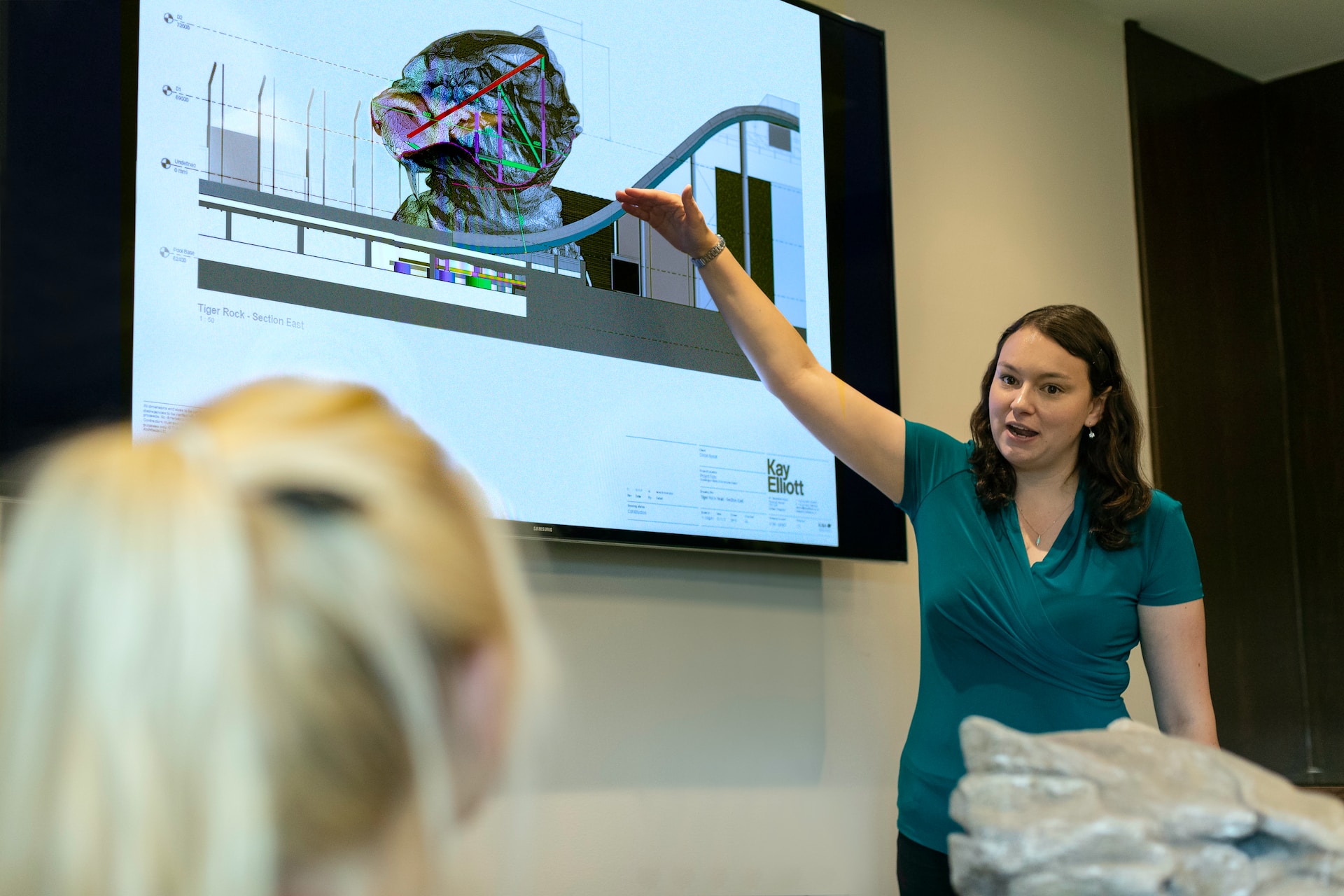So the question remains; Why does PPC conversion tracking matter to you & your business?
Well, for starters, only knowing how many clicks you’re getting doesn’t tell you how many are resulting in sales. Wait! If you’re thinking,
I track my sales!
Good!
But, think again and answer me this – be specific: how many of those sales were acquired through AdWords paid traffic?
…
You don’t know?
That is why you need conversion tracking, in a nutshell.
You also might be thinking of settling on surveying customers as to how they heard about you. Surely, then you’d be able to at least estimate the number of sign-up’s/sales coming through AdWords.
Sorry but, the answer is no. Most everyday users won’t recall if they clicked on an organic listing or paid ad in the SERPs and just say they found you on Google. Not helpful.
The truth is, if you’re using AdWords properly and to its full capability, you shouldn’t have any questions about your return on investment for AdWords.
Signing up, creating a campaign, keywords, ad groups, and ads to participate in the paid results on SERPs is only part of the bigger picture. You’re missing out on a lot of valuable information if you don’t take the time to determine the conversion actions, also known as goals, which are most important to your business. If you’re not sure what your AdWords goals are, learn more about key performance indicators or KPIs for AdWords.
Different businesses have different goals; some want to receive more phone calls, some want to see an influx of leads generated, others want grow their email list via a subscription form, and everyone wants an increase in sales. No matter your goals, with the information you gain from conversion tracking, you can determine the return on investment for your AdWords campaign(s) and make informed decisions about your marketing spend.
Let’s begin with a brief look at what conversion tracking is, direct from Google AdWords Help Center.
Image Source: https://support.google.com/adwords/answer/1722022?hl=en
Read on to learn why you should take full advantage of the benefits of conversion tracking for your business’ AdWord account.
Table of Contents
ToggleHelps You Make More Profitable Advertising Decisions
Tracking significant actions taken by users on your website after they click through an ad is important because it will help you to make more informed and in most cases, if you know what you’re doing, more profitable decisions in your AdWords account. Not all business owners, CMO’s, or Marketing Managers have the time or know-how to set up conversion tracking. That’s okay. Even if you need to invest further than just your PPC advertising dollars and outsource the task of conversion set-up, or outsource PPC account management all-together, it is worth it. As an example, let’s suppose you already have a well-targeted, well-built AdWords campaign with no conversion tracking. You may be making sales, and profit – but, what percentage of profit is your AdWords investment returning to you?
Consider for a moment, how much more advertising power you could be harnessing if you knew at a granular level which elements of your AdWords campaign(s) are directly resulting in profit.
Helps You determine Which Keywords and Ads are Working For You
Without conversion tracking, you can only view the surface analytics, like how many impressions and clicks keywords and ads are receiving. Impressions and clicks on their own aren’t bad, in fact, they contribute to brand awareness but, on their own they lack any follow-through to how they’re paying back your business’ investment in AdWords. You can’t connect the dots on which keywords or ads are actually driving valuable actions on your website. With conversion tracking properly integrated, once you get recorded conversions, you can get down to the nitty-gritty of which keywords and ads are facilitating conversions. From there, you can easily make adjustments by pausing or removing under-performing keywords, and testing elements of your ad copy like the description, call-to-action, or display URL.
Sheds Light On Where Your User Experience Needs To Improve
The problem with most AdWords campaigns and websites boils down to user experience. It contributes greatly to quality score and click-through rate in AdWords, as well as bounce rate, time spent on page, and you bet, conversions. Intuitively, and perhaps a bit impatiently – people will automatically click on the search result (paid or organic) whose description most closely matches their search query, and decide within seconds whether or not they’ll take any further action based on page load speed, the quality and relevance of the landing page, usability, & mobile-friendliness, among others.
Utilize the power of your website to hugely impact your AdWords performance by considering where you need to improve at the site level before you hemorrhage ad dollars on sending paid traffic to a site your target audience is not going to interact with or ever covert on.
What does this mean for the relationship between your website and your AdWords?
Send paid traffic to a specific landing page, designed to welcome your target audience, and marry it to the ad that brought the traffic there. Track and test variations of the landing pages with different high-performing keywords and ads to see where you can improve.
In one study, featured in Quick Sprout’s Landing Page Optimization Chapter 1, “The ad-specific landing page outperformed the generic page by increasing lead form submissions by 115%”.
Provides You With An In-depth Look at Which Offers and Promotions are Working
Got a promo in AdWords? Awesome!
Making sales? Good work!
Was it the investment of $500.00 extra budget in AdWords to have more opportunity to drive traffic to the promo ads?
Was it the email newsletter announcing the promo that’s to thank?
Or, the inflatable tube man outside?
Without conversion tracking, you wouldn’t know what amount of goal completion’s came as a result of the $500 extra budget you fed to AdWords for the promotion.
You can incorporate promo codes in the ads to track sales from AdWords for a specific promotion.
Ever so closely tied to testing ad copy and landing page optimization, you can utilize specific promo codes in the same way to learn more about what your target audience likes and what entices them to click.
Provides a Historical Data-based Benchmark
How many revenue earning actions were taken on your site last month? Last year? Conversion tracking is like a full-time, 24-7, 365 days a year keeper of your conversion data and can be easily incorporated into your AdWords and Analytics reports. As time goes on, you’ll have access to a historical record of your conversions month over month, and eventually year over year.
If you ever need to delegate your PPC account management to an agency, they’ll have access to that historical data (We love data!).
Assigns a Dollar Value to What a Conversion Is Costing You
A significant PPC metric to business owners and marketers alike is, how many clicks do I have to pay for to get a conversion? Or, in other words, how much do you have to spend to get a sale? In this context, a sale represents the action you want users to take on your website, so it could be a purchase of your product or service, a lead form submission, blog subscription, social share etc.
Different conversion actions have a different value to your business. Let’s say you’re a realtor, for example. A form filled out for a request a showing on a house likely has more value for you than a visitor who subscribed to your blog but, both are significant.
With conversion tracking, you can assign a value proportionate to the value that that conversion has for the way your business earns revenue.
Creates More Opportunities for Optimizing Your AdWords Campaign
By default, AdWords sets your ad rotation setting to optimize for clicks, which means that you are giving Google AdWords permission to show the ad(s) it expects will provide the most clicks.
One of the many benefits of conversion tracking is once your AdWords account has acquired more than approximately fifteen conversions within a 30 day period, you can employ conversion optimizer. The conversion history in the account is required so Google AdWords can make educated predictions about your future conversion rate.
Conversion optimizers’ mission is to get you the most conversions for your ad spend. It focuses on maximizing conversions while basing its behavior on serving the ads based on your desired maximum cost-per-acquisition (most amount of money you’re willing to pay for a conversion) or target cost-per-acquisition (average amount of money you’re willing to pay for a conversion).
Gives You More Manageable Bidding Options
With conversion optimizer, you can start using cost per acquisition bidding, or CPA bidding in your AdWords account. Use this helpful CPA calculator By Paul Knegten of Dapper (http://www.clickz.com/static/cpa-calculator) to calculate CPA by using your CPM (cost per mille) or CPC (cost per click).
What’s most important to note here is that along with conversion optimizer, CPA bidding focuses on maximizing conversions, not just clicks, like CPC bidding does. You still pay per click, however, AdWords will automatically set bids to help you get more conversions.
This type of bidding strategy combined with insight to which elements of your campaign(s) are working well for capturing your target audience and leading to conversions can only further benefit your business’ ability to improve ROI.










